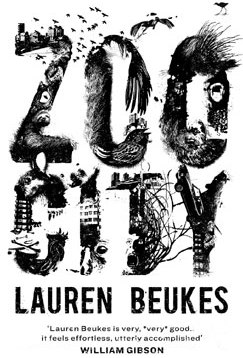South African literature: new genres
In the new millennium South Africa’s literature landscape can be seen to have normalised somewhat, shifting from the pressing social issues demanded by a twisted apartheid society to more universal storytelling.
There has, for example, been a significant rise in South African crime drama.
The pioneer and stalwart of the crime genre is Deon Meyer, who writes in Afrikaans but whose translated work has garnered awards across the world. Meyer’s first work was
Wie met Vuur Speel in 1994, but it was the 1996
Dead Before Dying that launched him.
He has since published more than 10 crime novels, including
Devil’s Peak (2004), which won the ATKV Prose Prize, the Swedish Academy of Crime Writers’ Martin Beck Award and the Readers’ Award from CritiquesLibres.com for Best Crime Novel or Thriller.
Another major figure is Richard Kunzmann, whose police procedurals explore a contemporary South Africa. Rampant crime and an under-resourced
police force provide the backdrop for the critically praised Harry Mason and Jacob Tshabalala series.
Mike Nicol’s first novel,
The Powers That Be (1989), brought a magic-realist sensibility to South African literature, and his fourth,
The Ibis Tapestry (1998) is a post-modern take on the secrets of South Africa’s apartheid abuses. Nicol then ventured into crime fiction with
Out to Score (with Joanne Hichens, 2006),
Payback (2008),
Killer Country (2010) and
Black Heart (2011).
South African science fiction is also making a place for itself, most notably in Lauren Beukes’s
Zoo City (2010), set in an alternate of Johannesburg in which people who have committed a crime are magically attached to an animal familiar – in the protagonist’s case, a sloth.
In 2011,
Zoo City won the Arthur C Clarke Award, the most prestigious science fiction award in the world. It also won the 2010 Kitschies Red
Tentacle Award for best novel, and was shortlisted for the 2010 BSFA Award.
While apartheid was fertile ground for writers to grow their stories, it also limited and narrowed their scope. The new millennium has not only broken new ground for more mainstream genres, it has also seen a rise in local publishing, and of writers increasingly confident in their ability to tell South African stories to a universal audience.

